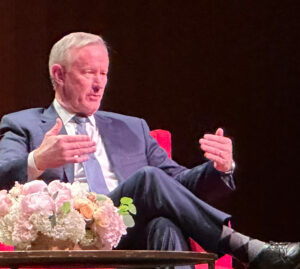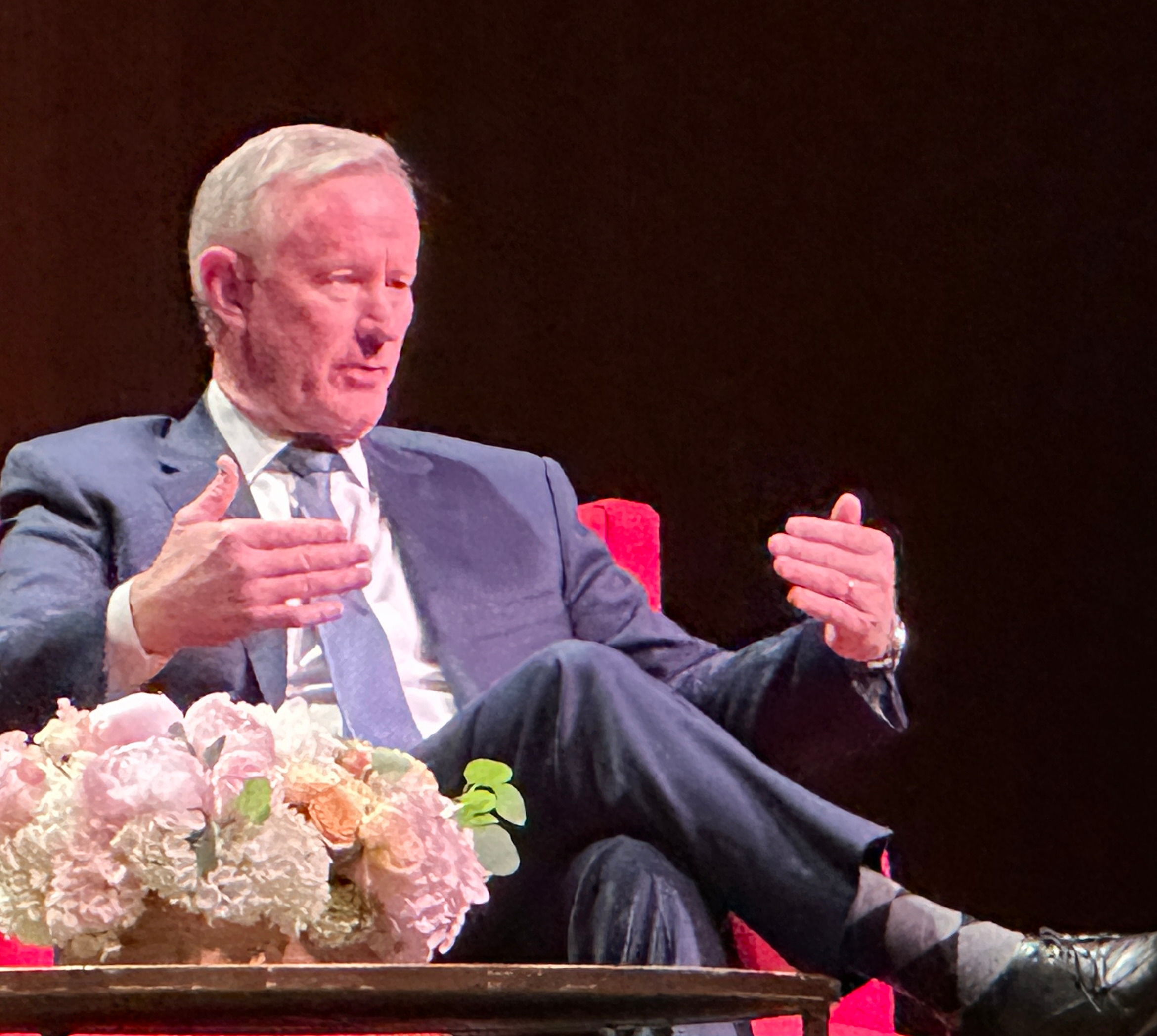Four-star Admiral William McRaven was back in a familiar venue. Six years ago, he was interviewed by Mark Updegrove, President of the LBJ Foundation here in Austin. The interview took place in the Lady Bird Johnson Auditorium. On May 30 McRaven and Updegrove resumed their conversation in the same place.
Six years ago, the interview was impromptu. The guest of honour that night was late, so they filled in some time before he got there. Updegrove recalled that at some point he saw a bright smile from the wings, signaling the end of the talk with the admiral. Then, Vice-President Biden strode out and the evening proper began.
This time they had an uninterrupted hour, touching upon topics such as his commencement address at the University of Texas in 2014 (the most famous such address in history, viewed some 10 million times on YouTube) and his command of the raid that killed Bin Laden in 2011.
However, it was McRaven’s comments about the educational system in the United States that had the most resonance with the audience. He has been outspoken on this issue in the past, and in his remarks this week, he still sees no improvement in the education most kids get.
Because of his background as a Navy Seal, he often gets asked ‘What is the greatest national security threat?’ “They always thought I would answer Iran or North Korea, but my answer was always the same: K through 12 education. The reason I think that’s important is because if we are not reaching our young men and women how to think critically, having the right STEM skills, understanding civics, understanding how to behave well in a tough, contentious environment – if we’re not teaching the basics of math and science and reading – they’re not going to be good decision makers when it comes time to make decisions on national security.”
McRaven said it’s been a long time since America has invested in education, but it never seems to get done. “We can’t give up on that. It’s our legacy for our children and grandchildren. We have to do right by them.”
Specifically on those who are entrusted with the education, McRaven was particularly strong. “I don’t understand why we are not investing more in teachers. The teachers are teaching the youth of America, we need to invest in them and invest in our schools and school safety. I can’t imagine what it must be like being a kid going to school and worried that you’re going to have an active shooter.”
Asked by Updegrove if he would implement any ‘quick wins’ as Chancellor of all public schools, the admiral replied “I don’t think there are quick wins. People are always looking for quick wins. There are parallel paths: first you have to invest in the teachers. You’ve got to make sure we have quality teachers who are raising, in some degree, our children. That is one path where we have to figure out how to take better care of teachers.
“The other path is school safety. The nature of schools in certain areas where it is challenging for kids to go to school and to learn is important. Are they well fed, do they feel safe in the environment, are they in an environment where they can learn? If they’re not in that environment, it doesn’t do any good.”
McRaven emphasized that the top brass at the schools is critically important. “One of the things I found when I was Chancellor of the University of Texas – a key thing that made a difference – are the principals. If you have a great principal, you are probably going to have a great school. Invest in the principals and the superintendents of the school districts. Invest there and you will begin to make a difference.”
Photo by C Cunningham
McRaven in Austin on May 30, 2023
